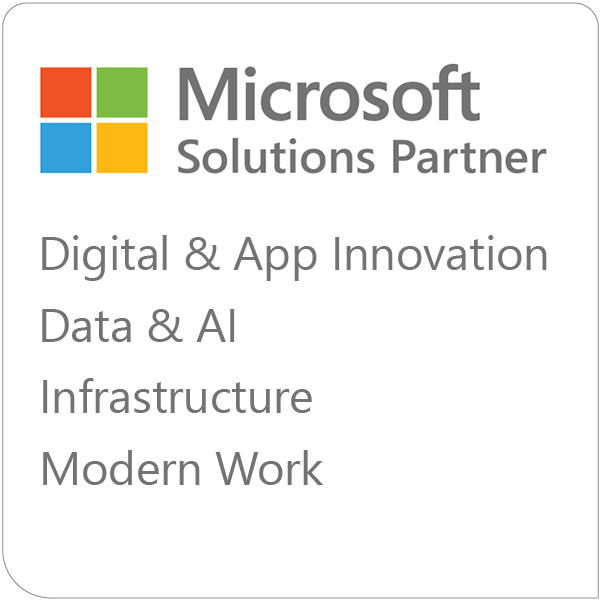The sales landscape for many companies in today’s digital-first world is competitive. With the amount of information available at our fingertips, companies need to go the extra mile to stand out in a sea of competition. Personalization is becoming the most essential tool in a marketer’s toolkit in providing a tailored experience to prospects to keep them engaged and an active part of the sales process. More than ever, customers want to work with companies who understand who they are, the challenges they face and feel like their specific problem can be addressed.
Personalization is the key to building better relationships with your customers and can set you apart in the ever-growing need to stand out in your market. Let’s take a deeper dive into what exactly personalization is, why it’s important, how to do it, and why our favorite enterprise-level CMS Sitecore offers the best experience for marketers with personalization goals.
What is personalization?
According to Gartner, personalization is a process that creates a relevant, individualized interaction between two parties designed to enhance the experience of the recipient. Personalization can be applied in one of two ways: in your website content and across online experiences. Have you ever visited a website and you’re presented with information and resources targeted to your geographic location? How about a marketing email that uses your first name, job title, and company name? That’s personalization at work.
Personalization can occur in a variety of marketing channels such as:
- Your brand’s website
- Email marketing campaigns
- Mobile apps your customers use to access your product or services
- Online search and social media advertising
- Website chat and customer service communication channels
Why is personalization so important?
Gone are the days of one-size-fits-all marketing campaigns targeting the biggest group of consumers possible. Today, individual conversations with your customers are what drives conversions and revenue for your organization. Delivering the value your customers want when and where they want is the key to success in digital marketing, and personalization is how you achieve that.
Personalization makes these individual conversations with your customers easier and allows you to scale your efforts quickly. Your customers want to feel like your business understands them on a personal level and tend to engage with content that resonates with them over content targeted toward a mass audience.
Here are a few stats from Forbes to illustrate the power of personalization:
- 80% of consumers are more likely to make a purchase from a brand that provides personalized experiences
- 83% of consumers are willing to share their data to create a more personalized experience
- 84% of consumers say being treated like a person, not a number, is very important to winning their business
- 55% of marketers say the top benefit of personalization is increased visitor engagement and improved customer experience.
How do you personalize your website and content?
There are a few strategies that work best for implementing personalization into your marketing efforts. Here are 4 different ways to think about personalization:
1. Audience segmentation
The act of breaking down your customer base into a set of segments is likely something you already do as a marketer. Segmentation allows you to define the specific audiences in your market and helps you to develop strategies that appeal to that group. To personalize your marketing efforts, you might break down your audience into groups based on their demographics (age, gender, location), behavior (new vs returning customer), the technology used to visit your site (mobile or web browser), or by other details specific to your company (current email subscribers or specific product purchases).
2. Persona-based
Different from audience segments, brand personas are another way to create personalized experiences. A brand persona is a collection of personality traits, attitudes, and values that your brand highlights regularly to help connect with a certain audience segment. Personas help bring your marketing ideas to life and allow you to infuse your brand’s personality into your content. They help guide the decisions you ultimately want your users to make – whether that is signing up for an email list, clicking that download button on a resource, or booking a meeting with your sales team to learn more about your business.
3. Sales funnel stage
Every business has a unique sales cycle and experiences should be tailored to users at every stage. Different stages of the sales cycle mean that users are focused on different outcomes. Someone at the beginning of the funnel might benefit from high-level informational content, whereas someone near the end of the funnel might be willing to dive deep into a technical or complex piece of content. No matter where a user is in the sales funnel, it’s important to deliver them the personalized experience they’re looking for.
4. One to one
Lastly, personalization can happen on a one-to-one basis in your marketing strategy. One-to-one personalization is often seen in the eCommerce industry. Experts in that industry leverage our buying behavior to create personalized discounts, make product recommendations, and remember things like our shoe size to tailor our shopping experience uniquely to us. Things like addressing a site visitor by their name or job title are a great way to implement this strategy into your marketing efforts.
How Sitecore powers personalization at every step
Having a website CMS that allows you to implement the above personalization strategies is going to make your life a lot easier. We’re big fans of Sitecore’s powerful personalization features for enterprise-level clients as it seamlessly integrates the best of marketing automation and content management features into an easy-to-use platform. Here are a few specific ways Sitecore can help your personalization strategy:
- Natively create personalized content while making any type of experience by immersing yourself in the user’s experience.
- Experience editor has personalization built-in so you never need to leave the page you’re working on
- Flexible, scalable data storage means you can collect all contextual data and leverage it for real-time experiences
- With Sitecore Cortex, teams get data insights and personalized suggestions, making the path to personalization smarter and easier
Interested in learning more about how to level up your marketing strategy this year? Check out this blog post on why every website needs analytics.
Want to talk more about how Sitecore can power your personalization strategy and give your customers a better experience? Contact us today to get started.






